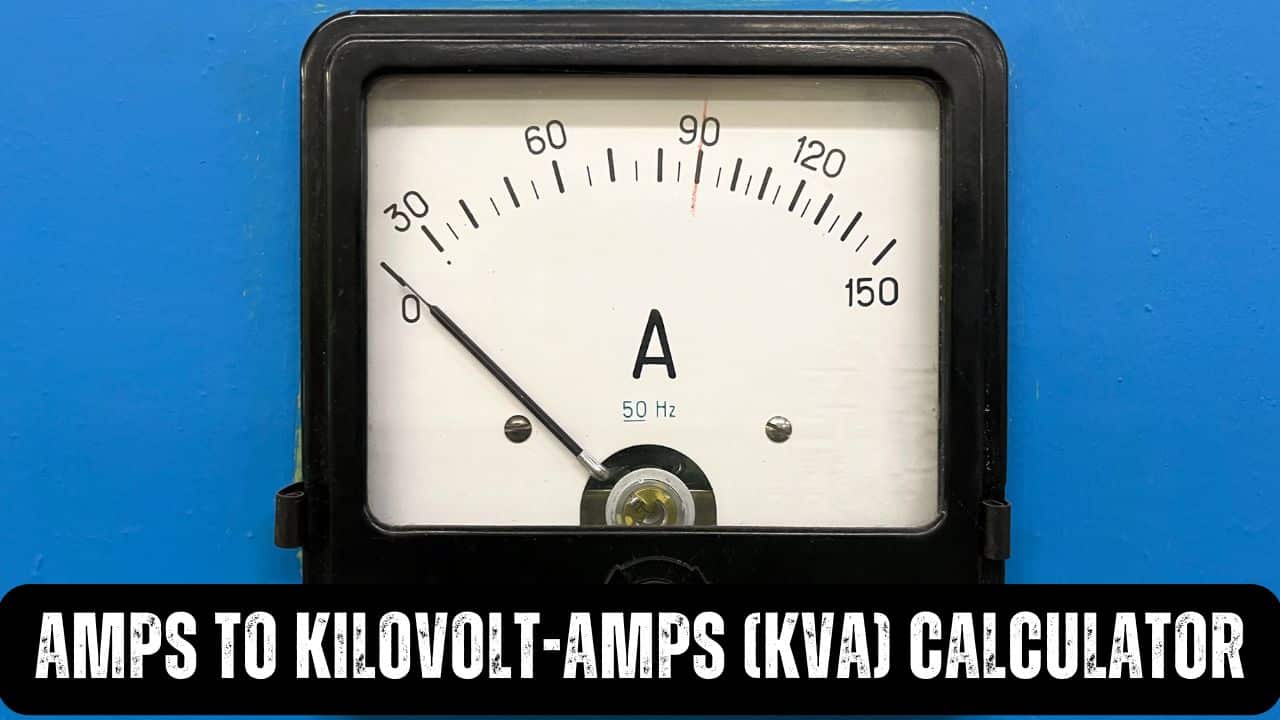Amps to kVA Calculator

kVA to Amps Conversion
To convert kilovolt-amperes (kVA) to amps, you need to know the voltage (V) and whether it’s a single-phase or three-phase system, because kVA measures apparent power while amps measure current.
Single Phase Calculation
Think of this like water flowing through a pipe. The current (Amps) is like the water flow, and voltage is like the pressure pushing it. Here’s how we calculate it:
I(A) = 1000 × S(kVA) / V(V)
- I(A): The current in Amperes – this is what we’re solving for
- S(kVA): The apparent power in kilovolt-amps – think of this as the total power
- V(V): The voltage in Volts – this is like the electrical ‘pressure’
Three Phase Calculations
Line to Line Voltage
In industrial settings, we often work with three-phase power. Here’s how we calculate it:
I(A) = 1000 × S(kVA) / (√3 × VL-L(V))
- I(A): Current flowing through each phase
- S(kVA): Total three-phase apparent power
- VL-L(V): Voltage between any two phases
- √3: A magic number that helps us account for three-phase relationships
Line to Neutral Voltage
Sometimes, especially in residential settings, we work with line to neutral measurements:
I(A) = 1000 × S(kVA) / (3 × VL-N(V))
- VL-N(V): Voltage between any phase and neutral
- Other components remain the same as above
Example
Imagine you’re working with a single-phase system in your home:
- Your appliance shows: 5 kVA
- Standard home voltage: 230 V
Let’s solve it:
I(A) = 1000 × 5 kVA / 230 V = 21.74 A
🎉 Your circuit needs to handle approximately 21.74 Amps!
